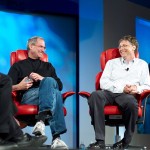
A few years ago, Xerox became interested in cutting down the turnover rate at its 48,500 call-center jobs. Specifically, the company invests $5,000 in training in each new call center employee, and wanted them to stick around long enough to make that investment worth it. So, Xerox spent six months assessing its own hires, and then coupled that with information about their background and personality types. And what Xerox found was that experience had no correlation to employee longevity, but instead creative types stayed longer at the company than inquisitive types. Naturally, Xerox began targeting employees that were more creative …Read more »









